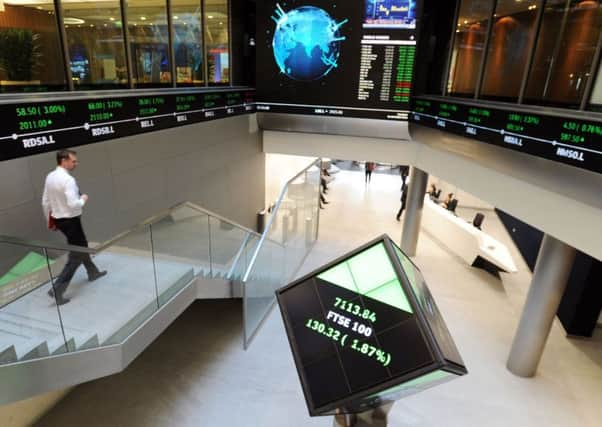Martin Flanagan: Equities rally on sterling's weakness
This article contains affiliate links. We may earn a small commission on items purchased through this article, but that does not affect our editorial judgement.


Blue-chip share prices jumped to near-all-time highs yesterday. But it came as the pound dived to a new 31-year-low against the dollar, forex markets being rattled by inferences from Theresa May’s speech to the Tory conference that she has prioritised control of the UK borders and no subservience to the European court of justice over purely economic matters in our withdrawal from the European Union.
Chancellor Philip Hammond’s not desperately sanguine warning that UK business faced a turbulent two years from the spring when the negotiations to leave the EU are likely to start also hit sterling.
Advertisement
Hide AdAdvertisement
Hide AdWith a further rate cut from historical lows also still on the table at the Bank of England, it is not difficult to see why the pound is back on the ropes again. It is the world’s worst-performing currency this year, and many dealers expect things to get worse before it gets better.
Why is it that equities are going the opposite way? Quite simply, between 70 and 80 per cent of sales at businesses in the FTSE 100 index are made overseas, which therefore translates into many more (weakly valued) pounds when that money is repatriated to the UK.
That has very positive implications for earnings and dividends at those multinationals, hence the almost strange euphoria in the City when the broader picture could suggest serious economic trouble may be a bit down the road.
The same is true of Britain’s medium-sized to largish companies. About 70 per cent of their sales are abroad. This dichotomy between equities and sterling is likely to have some way to run yet. There is also a contrasting narrative elsewhere. British holidaymakers going abroad will see their pounds buy noticeably less. but, more positively, our own tourism industry is getting a shot in the arm from Americans and Chinese, in particular, flocking to these shores at advantageous currency exchange rates.
Meanwhile, positive construction industry data added yesterday to recent better news from services and manufacturing in the wake of our June Brexit watershed, a pretty unexpected state of affairs. But the doomsaysers – and Hammond didn’t disabuse them – believe that tougher economic times may be on the way. Strange times.
